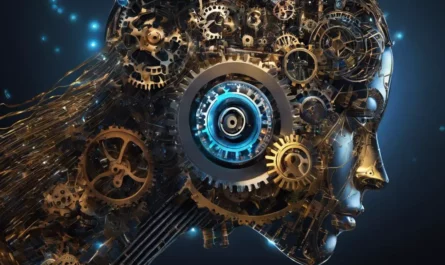As artificial intelligence (AI) continues to reshape the landscapes of industry, society, and personal life, the imperative to democratize this transformative technology becomes ever more pressing. The quest to make AI accessible highlights a series of profound challenges, from closing the yawning digital divide to ensuring ethical development and equitable usage. It involves not only the evolution of technology and infrastructure but also a concerted effort to foster an AI-literate society where diverse voices contribute to steering the AI revolution. Yet, without thoughtful policy and mindful consideration of the economic waves AI casts upon the shores of our workforce, efforts to democratize AI might falter. This discussion is critical, examining the barriers we face and the bridges we must build to usher in an era where AI serves the many, not just the privileged few.
Accessibility and Infrastructure
Ensuring Equitable Access to Artificial Intelligence Technology: A Scholarly Imperative
Artificial Intelligence (AI) stands on the precipice of transforming every domain of human activity, promising to redefine industries and enhance human capabilities. Yet, as society stands to gain immeasurable benefits from this technological revolution, an ethical imperative surfaces: the necessity to ensure equitable access to AI technology. The road to equitable access involves multi-faceted strategies that address educational, economic, and social barriers.
Educational Infrastructures for AI Literacy
One may argue that equipping individuals with AI literacy is the cornerstone of democratizing AI. Global education systems must integrate curricula that span from basic digital literacy to advanced AI competencies. Initiatives should target a spectrum of learners, from early education to adult learning environments, ensuring that the populace is prepared for an AI-augmented future. Furthermore, supplementary educational programs must be fostered in underrepresented regions and communities, thus minimizing the disparities exacerbated by geographic or socioeconomic factors.
Transparent and Open-Source AI
To abate the monopolization of AI by technology conglomerates, there exists a call for open-source AI platforms. The proliferation of transparent and user-friendly AI frameworks can stimulate innovation across diverse demographics. These platforms should be accompanied by extensive documentation and support communities, enabling users from all walks of life to develop and deploy AI solutions without the deterrents of high costs or intellectual property restrictions.
Regulatory Frameworks Enhancing Accessibility
Regulatory frameworks must uphold principles which mandate that AI technologies are accessible to all, irrespective of one’s economic standing. Policymakers play a pivotal role in creating legislation that encourages or, if necessary, obliges corporations to make AI technologies available at equitable price points or through public service provisions. Furthermore, universal design principles should be integrated into AI solutions, ensuring they are usable by individuals with varying abilities, thus endorsing inclusivity.
Cultivating Diverse AI Ecosystems
AI should be developed by diverse teams that reflect the richness of human experiences and perspectives. Efforts to include underrepresented genders, races, ethnicities, and social backgrounds in the AI workforce are crucial. Such inclusion mitigates the risks of biased AI and ensures the creation of systems that respect cultural nuances and serve broad societal needs.
Economic Models Promoting Equitable Access
Sustainable economic models that support the wide dissemination of AI must be explored. Models such as public-private partnerships can harness the strengths of both sectors to provide AI technologies to the public at subsidized rates or through government programs. In addition, investment in AI startups from marginalized communities can induce localized economic growth and create a more balanced field of innovation.
In conclusion, the pathway to securing equitable access to AI technology entails a collaborative engagement across educational, industrial, and governmental institutions. An emphasis on inclusive education, transparent AI resources, regulatory vigilance, diverse AI ecosystems, and economic models conducive to equitable access, comprises a holistic approach that can transform the ideal of democratizing AI into an operational reality.

Ethics and Bias in AI
The Labyrinth of Ethics in Democratizing Artificial Intelligence
In the pursuit of technological equity, the democratization of artificial intelligence (AI) stands as a noble ambition. However, ethical considerations form a complex maze that one must navigate to ensure the responsible and just proliferation of AI technologies. While prior discourse has covered the foundational steps of education, transparency, regulation, diversity, and economic incentivization, the conversation remains incomplete without addressing the deeper ethical conundrums.
Data Ethics and Privacy Protections
One of the chief ethical concerns in the democratization of AI is the matter of data integrity and privacy. AI systems are fundamentally data-driven; thus, the dissemination and use of such technologies must uphold the highest standards of data protection to prevent misuse and exploitation. Concerns about consent, anonymity, and data ownership emerge especially in low-resource settings where individuals may unknowingly become subjects of data extraction without adequate safeguards or understanding of the implications.
Bias and Discrimination
Moreover, AI systems have been scrutinized for reflecting and perpetuating biases present within their training datasets. To democratize AI effectively, there must be a robust ethical commitment to dismantling these prejudices within algorithms. This necessitates a multifaceted approach, including diversifying data, implementing stringent checks for fairness, and constructing algorithms that are designed to deliver unbiased outcomes — a tall order that requires dedicated ethical vigilance.
Autonomy and Accountability
The heightening capabilities of AI raise ethical questions regarding autonomy and the shifting locus of decision-making. As AI continues to make more complex choices, determining accountability when these choices result in harm becomes increasingly difficult. A democratized AI must employ ethical frameworks that delineate clear policies on liability and ensure systems are developed with constraints that prevent them from infringing upon human autonomy.
Impact on Employment
Democratization involves not just access but also implications on the workforce. The integration of AI into various sectors harbors potential for job displacement. An ethical approach to AI democratization requires careful consideration of the workforce and strategies to mitigate adverse impacts. This involves promoting policies that encourage the evolution of job roles in tandem with AI advancements, and providing re-skilling opportunities to foster a future-proof labor market.
Conclusion
In closing, while democratization of AI could pave the way for technology’s equitable benefits, the endeavor is laden with profound ethical considerations that bear significant consequences. Ensuring privacy, combating bias, maintaining human autonomy, and safeguarding the workforce are just a few waypoints in the ongoing ethical deliberation. The democratization of AI should be responsibly pursued with a keen understanding of these ethical imperatives, focusing on establishing AI not merely as a widely available tool but as one that upholds, unequivocally, the values of fairness, respect, and justice.

AI Literacy and Education
In the advancing horizon of artificial intelligence, the quintessence of AI literacy emerges not merely as an option but a necessity to enable equitable participation in a landscape increasingly shaped by algorithms. The democratization of AI is contingent upon a wide base of the population acquiring an understanding of AI principles, their applications, and the implications thereof.
AI literacy equips citizens with the tools to critically assess AI technologies and their outputs. As AI permeates various sectors, from healthcare to finance, the ability to discern the limitations and capabilities of AI systems becomes imperative. A populace conversant with AI can thus demand meaningful explanations for algorithmic decisions, ensuring transparency and fostering trust in AI applications.
Moreover, AI literacy is vital for promoting civic engagement in policy dialogue and decision-making processes. With an informed public, legislation can be shaped to reflect the collective will and to safeguard communal values in the deployment of AI. An AI-literate society is better positioned to advocate for responsible AI practices and to challenge abuses that may arise.
The role of AI in shaping the political discourse cannot be understated. Algorithmic recommendation systems have the potential to influence public opinion and behavior, making an understanding of their mechanics and biases crucial for a healthy democracy. An AI-literate electorate is less susceptible to manipulation and better able to discern credible information from AI-mediated content.
In the context of justice and legal systems, AI literacy allows for the rigorous evaluation of AI tools used in predictive policing, bail setting, and sentencing. Aware of the perils of data skew and algorithmic bias, an enlightened populace can demand equity in AI-based judicial decisions and uphold the principle of fairness in governance.
From a socio-economic perspective, AI literacy is a bulwark against social stratification driven by differential access to AI resources. By leveling the informational playing field, individuals across the socio-economic spectrum can benefit from AI advancements, thereby preventing a potential AI divide that exacerbates existing inequities.
The concept of AI literacy transcends the technical aspects and delves into the ethical dimension of AI. A nuanced understanding of AI facilitates the recognition of ethical dilemmas and moral considerations inherent in automation and machine intelligence. In cultivating a culture where the ethical development and use of AI is a shared priority, society fortifies its defenses against potential misuse of this potent technology.
Lastly, the inclusion of AI literacy in educational endeavors fosters the development of critical thinking and problem-solving skills, preparing future generations for the challenges and opportunities posed by AI. As AI systems become collaborators and co-creators in the workplace, an AI-savvy workforce will be paramount in steering these interactions towards augmenting human potential rather than replacing it.
In conclusion, the criticality of AI literacy in the democratization of AI cannot be understated. It represents the cornerstone of an aware, empowered, and participatory society in which AI is developed and deployed for the collective good, with due regard for the rights, values, and aspirations of all individuals.

Policy and Regulation
As we delve further into the intersection of policy, regulation, and the democratization of artificial intelligence (AI), it is paramount to consider not just the configuration of institutional arrangements but also the impacts of intellectual property laws on AI innovation and distribution. Intellectual property rights can be a double-edged sword in the realm of AI democratization. While these laws are designed to incentivize innovation by protecting the fruits of investment and labor, they can also impede wide access to AI technologies by establishing monopolistic controls over critical algorithms and datasets.
AI technologies frequently rely on extensive data for training algorithms. Hence, data governance policies significantly influence who can innovate and who can access the fruits of that innovation. The debate on data ownership, data sharing mandates, and the ethics of data collection underpins many regulatory discussions. The capacious aggregation of data by a limited number of entities creates an undulating terrain where these entities inevitably become gatekeepers, making it challenging for smaller or less resourced entities to partake equally in AI advancement.
International collaboration and the harmonization of AI regulations also play a role in ensuring that the benefits of AI do not become the province of a few nations. As AI technologies do not respect borders, an international consensus on standards and norms is vital. Global alignment on AI policies can mitigate the risk of balkanization of AI advances and promote inclusive growth and shared benefits. This shifts the perspective from a national or regional paradigm to a more cosmopolitan outlook on AI governance.
The impact of AI on intellectual property itself is noteworthy. As AI systems become capable of generating art, music, and literature, or contributing to inventions, patent systems and copyright laws face new challenges. The way forward demands a rigorous analysis of the implications of AI-generated creations on the existing IP landscape and the prospect of extending or revising IP laws to embrace this new reality without stifling the democratization efforts.
Furthermore, international trade agreements and investments play a foundational role in shaping the global diffusion of AI technologies. The terms on which countries trade AI hardware, software, and services can either enable a fertile exchange and capacity building or lead to technological dependencies that stratify global power dynamics.
In conclusion, the path to a democratic AI future is convoluted with complex policy and regulatory considerations that stretch beyond national frameworks and require global cooperative engagement. The interplay between intellectual property law, global trade, and international standards on AI significantly determines the democratization trajectory of AI. Paving the way for an equitable and inclusive AI future is contingent upon recognizing and judiciously navigating these constituent elements, underscoring the exigency for informed and conscientious global policy discourse.

Economic Implications
The pursuit of democratizing Artificial Intelligence (AI) hinges not only on the aforementioned essentials but also on correctly navigating the intricate landscape of intellectual property (IP) laws. These laws play a pivotal role in protecting AI innovations while also potentially stifiring the broad dissemination of AI technologies due to their often restrictive nature. A meticulous balance must be struck, wherein innovators can safeguard their creations without impeding the flow of knowledge and access crucial for the democratization of AI.
In addition, data governance policies emerge as a double-edged sword. While they aim to manage and protect the troves of data feeding AI systems, these policies can also unevenly distribute the power to access and leverage AI, potentially leading to a concentration of control among a few entities. The differences in data governance structures across countries exacerbate the disparities in AI access and innovation, thereby challenging the uniform global upscaling of AI benefits.
These disparities lead us to the urgency for international collaboration. Harmonizing AI regulations across borders is imperative to ensure that AI democratization efforts are not balkanized by disparate legal systems. The absence of a global consensus on AI governance risks creating ‘data islands’ and ‘innovation silos,’ hindering the equitable spread of AI advances.
Furthermore, AI’s unique capacity to generate, analyze, and apply data poses intriguing challenges to traditional conceptions of intellectual property rights. As machine learning algorithms increasingly create content, the delineation of ownership becomes blurred. Who owns an AI-generated invention or creative work? The algorithm’s developer, the owner of the data, or the AI itself? These questions necessitate the reformulation of existing IP frameworks to accommodate the novel implications of AI-generated outputs.
Lastly, international trade agreements and cross-border investments play a profound role in dictating the diffusion of AI technologies. As countries vie for technological supremacy, such agreements can either promote the free exchange of AI knowledge and tools or create gated technological communities that could disproportionately empower certain nations or corporations, potentially leading to a new form of digital colonialism.
In conclusion, it is imperative to foreground economic strategies that foster a fertile landscape for AI democratization. This requires grappling with the challenges posed by intellectual property laws, data governance, international regulatory alignment, and the nuanced interface between AI and IP rights, in the context of global trade. Addressing these issues is crucial to ensuring that AI serves as an equitable driver of progress across nations, sectors, and societies.

The journey toward a future where AI is truly democratized is fraught with complexities and challenges that span social, ethical, and economic realms. As we stand at the crossroads of AI revolution and societal transformation, it is clear that building an inclusive AI future is a multifaceted endeavor demanding collaboration, innovation, and dogged commitment from all sectors of society. By addressing these challenges head-on—deploying resources judiciously, embracing inclusive education, and crafting forward-thinking policy—we empower ourselves to mold an AI-integrated world that reflects our diverse values and aspirations, a world where the promise of artificial intelligence is realized equitably across the many tapestries of human existence.
Experience the magic of Writio: an AI wordsmith that crafts captivating content. This article was effortlessly written by Writio.




